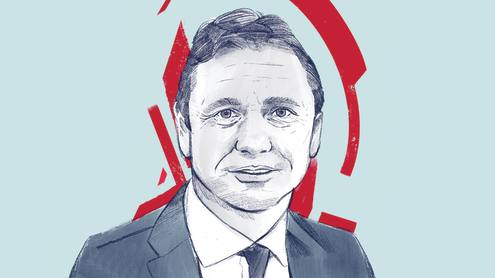I started my tenure as chairwoman of the Cyprus Securities and Exchange Commission (CySEC) in September 2011 at the start of a difficult period for Cyprus as a country. The following year Cyprus held its first presidency of the EU, and then endured an economic crisis that resulted in a €10bn international bailout by the European Commission, the European Central Bank and the International Monetary Fund, the closure of Cyprus Popular Bank, the resolution of the Bank of Cyprus and the downgrading of the Cypriot government’s bond credit rating to junk status.
Against this inauspicious background, my vision and mission were to create a three- to five-year strategic plan for a regulator in the middle of a crisis. My initial role was to restore confidence in the investment sector, among investors in Cyprus and abroad, and deal with the cases that led to the banking crisis. This resulted in the issuing of €11m in fines for the banking sector and close to €20m in fines and settlements on other supervised entities for other infringements.
Our efforts to eliminate incidents of inappropriate conduct of business and anti-money laundering (AML) infringement are also evidenced by the actions we took in the form of licence withdrawals, public announcements, reprimands and the issuance of circulars regarding market practices. Specifically, between 2015 and 2021 we suspended more than 25 companies, closed 13 and banned several individuals from operating in the sector for up to 10 years. From 2013 until today, CySEC also sent 34 cases to the attorney general to investigate possible criminal offences by regulated entities.
A new beginning
From today’s vantage point, with a banking sector that has been transformed, the past weaknesses seem obvious. The sector was weak, due to the high number of non-performing loans, and more than 100,000 people lost deposits. My in-tray was very full in comparison to the incoming chair of any regulator, and I had to liaise closely with the central bank governor and the minister of finance as part of a resolution committee to oversee the banking sector. CySEC conducted a thorough investigation into several events leading up to the banking crisis and the imposition of the bail-in in 2013 to achieve full transparency, accountability and the ability of the banking system to regain its credibility.
Much of our success has been based on close co-operation and exchange of assistance with other national regulators and authorities in today’s globalised and highly interlinked financial markets
In turn, there was a lack of confidence in the Cyprus Stock Exchange. Investors had lost confidence in investing and, as a result, companies couldn’t source funding through the traditional means of raising capital. There needed to be alternative means of financing the Cypriot economy. At a national level, it was decided that the supervision of collective investments to transfer should come under the umbrella of CySEC. Over the past eight years, we have modernised the regulatory framework and enabled any form of fund to be established and to raise capital with the highest compliance standards.
The important transition was to develop the framework for the investment funds sector, which has led to the growth of the collective investment sector as a key alternative form of financing. The funds under management have increased by 263% since 2016, reaching almost €10bn.
At CySEC, we viewed the development and progress of the capital market in Cyprus as a key goal, and this has been reflected in the growth of entities under its supervision, from just 247 in 2011 to 790 today. Adoption of the Markets in Financial Instruments Directive (MiFID) I in 2007 and MiFID II in 2018 led to the development of new and established investment firms providing different financial services across Europe and around the world, resulting in a significant development of the investment services sector.
Regulatory oversight
While finding new sources of capital has been instrumental in helping revive the Cyprus economy, there have been the well-chronicled issues with money laundering, and my aim was to build and apply a risk-based supervision philosophy to eliminate incidents of inappropriate behaviour and AML infringement.
Since 2015, CySEC has ensured employees in key positions are certified and continuously educated on regulatory issues. I believe that this has increased the level of professionalism in the sector, and boosted market confidence and market efficiency. In 2020, these requirements were extended to cover AML compliance officers, and by the end of the year, new exams will be in place for the financial information providers of regulated entities.
Regulators are often seen as purely guardians and supervisors of the securities market. However, from the beginning of my tenure, one of my aims was to support new financial technology, services and products, particularly those that can help finance the real economy’s growth and demonstrate real commitment to investor protection, though good governance. To achieve this, CySEC established an innovation hub in 2018 to explore the growth and uses of fintech and regtech. Currently, we are looking into the possibility of transforming the innovation hub into a regulatory sandbox under CySEC’s supervision.
Much of our success has been based on close co-operation and exchange of assistance with other national regulators and authorities in today’s globalised and highly interlinked financial markets. To this end, CySEC has worked closely with the European Securities and Markets Authority and the International Organisation of Securities Commissions, and has been instrumental in working in conjunction with the UK Financial Conduct Authority to ensure a smooth post-Brexit transition period with a temporary licensing regime. Currently, there are more than 50 UK firms providing services to Cyprus investment firms.
Capital market strength
I have always seen CySEC’s role as more than that of purely a domestic regulator, and the development and progress of the capital market in Cyprus has always been an important goal of CySEC. This has been underlined by the growth of investment services sector. The submission of applications from Cyprus and abroad has continued unabated, despite the difficult international financial environment and the challenges faced by the Cypriot economy in recent years.
I believe that capital markets can and should have an important role in supporting the policy objectives of the European Green Deal, as well as the EU’s international commitments on sustainability objectives. In Cyprus, although we have yet to see a large-scale shift towards responsible investments, we have already registered some alternative funds with an investment policy focusing on environmental, social and governance factors.
In this 10-year journey, Ι have had many significant challenges to face, against a backdrop of economic crisis and the current pandemic. As CySEC marks its 25th anniversary, and as a regulator we have grown rapidly in terms of resources and expertise. We have demonstrated a national regulator’s key role in the provision of sources of capital, as well as ensuring investor protection. Capital markets play a significant role in economic recovery and alternatives to bank financing. As a result, the completion of the Capital Markets Union is becoming increasingly imperative, as it will give increased impetus for wider co-operation across the EU.
Demetra Kalogerou is chairwoman of the Cyprus Securities and Exchange Commission.












